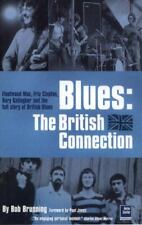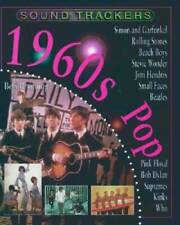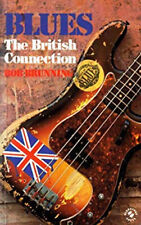|
Wichita Eagle and Beacon Publishing Company The Wichita Eagle & Beacon Publishing Co. September 15, 1998
TWO DECADES SINCE HEYDAY, GUITARIST PETER GREEN IS BACK Ben Wener, Knight Ridder News Service Anyone even remotely acquainted with the strange saga of Peter Green could guess that talking to the man might be an arduous task. In conversation, he's sweet, polite, more than willing to comment on his long, extremely troubled life . . . but, well, he's just not all there. Two decades of psychiatric clinics, electroshock therapy and heavy experimentation with LSD will do that to you. Ask a question, any question, and he'll tell you "that's a very good question" - but he doesn't usually have a very good answer. He's a blues man, or at least "I'm labeled one," but he can't quite remember if he ever made it down to Mississippi to metaphysically connect with the Delta. "I went through at night once," he recalled. "I don't think I made it to the bayou . . . if I even know what a bayou is. Some sort of swampland, isn't it?" This is what fans have come to expect from Green's legend. After all, this is the man who begat Fleetwood Mac - and forged it into a mighty blues outfit via classics such as "Oh Well," "Albatross" and "Black Magic Woman" (later a smash for Santana) -then walked away from it, disgusted with fame and money, heavily medicated and with a severe messiah complex. This is the man who spent the bulk of the '70s doing odd jobs (reportedly including grave-digger and hospital orderly) and a whole mess of acid. This is the man who made a brief comeback in the early '80s but by 1984 had grown so disillusioned that he swore he'd never pick up his guitar again. And this is the man who, prompted by his guitarist friend Nigel Watson, finally came out of seclusion two years ago to record with a new band, the Splinter Group. First-hand knowledge of the Ol' Miss or not, Green's latest is called "The Robert Johnson Songbook," a laid-back collection of the blues legend's most revered tunes. Sure, he has fans - loads of them, in fact, especially in critics' circles. In 1996, the noted rock journal Mojo conducted a critical survey of the greatest guitarists of all time. Green ranked third, behind Jimi Hendrix and Steve Cropper. He beat out Eric Clapton and Jimmy Page. But can he really make a successful comeback bid and keep what remains of his sanity? Green, 51, tends to slip back and forth from tentatively lucid to little-boy lost until he's certain he has something to say. At that point, you needn't even ask him a question, but you start: Is he nervous about this mini-tour of the States? "A little bit nervous, yeah," he responds. "But as soon as we start playing, it's OK." You start in on another question, but Green is still coming up with more thoughts on the previous one, almost as if he's defending himself. "Sometimes you just don't feel the confidence you used to, or the comfort you feel seems to betray you. I don't feel that as much anymore. I've got work to do, and if I don't do it . . . (pause) . . . I'm kind of worried here and there . . . not that I try to do anything too well . . . too polished. "No, not polished. It's that you whip around and you stop and you see how comfortable you are. When you're at the pinnacle of fame, that's all you're required to do - come out and be famous. It's different now." Indeed. Your heart goes out to the guy, because you can tell there are more thoughts - wise thoughts - rumbling through his brain than are able to come out of his mouth at a time. "I just seem to relate to everything more these days," he said later. "I realize how grateful I am, if you like." That's his attitude toward the "Johnson Songbook" as well - it just sort of fell into his lap. Same with the Splinter Group, at first just a sketchy outfit that played a dozen European dates here and there, now a solidified act. Green says his immediate plans are to do an album of J.B. Lenoir songs - and, in the process, he hopes to revitalize what he sees as "an embarrassing British blues scene right now. It's been very easy to not bother with blues in this country, to just let things be history. But I'm beginning to rethink my feelings on that." Still, can this last? Does Green feel that he's primed to reclaim his guitar-god throne? "I don't know what to tell you there," he says. "I'm an LSD person, so I don't know what to tell you. If I find myself screwing up, well . . . "He trailed off. He says he has kept up with MTV and VH1 and such from the start and knows how times have changed. So what does he think of the blues greats of the past decade or so? How does he rate Stevie Ray Vaughan? Kenny Wayne Shepard? "Never heard of those." Um . . . "I have this new Luther Allison record. He's great. I had never heard much of him before. I'm hoping to meet him soon." Of course, Allison died last year. It's just a glimpse into the unique world in which Peter Green lives. His talent is immense, and all of his emotional battering hasn't tainted it. But his psyche? "I'm really not sure what music I can do right now. I'm in a delicate stage. I'm not all too fluent anymore, and my playing isn't all too slick. I can only do the best things I can in this futuristic condition. "I'm confident, but from the medicine I've had to take, it's a blackened confidence."
Date: 2008-01-31
|







